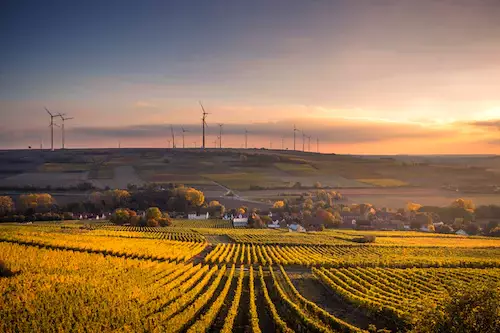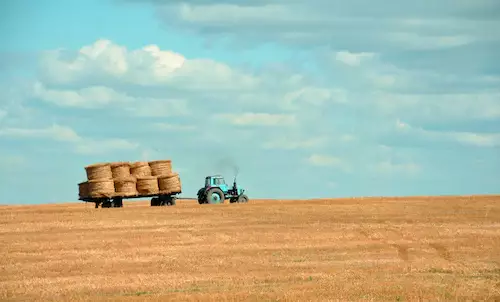The Ultimate Guide to Small Farm Grants (Detailed Overview)
Small farm grants provide a great opportunity whether you're looking to start a small farm, expand an existing farm, or fund a farming project. This guide gives a detailed overview of small farm grants, how to qualify for them, and where they can be used.
Small farm grants are an important resource for those looking to start or expand their operations. They can provide the capital needed to invest in land, equipment, and other resources. Small farm grants can be a great way to help fund your farm, with the right grant and application strategy.
With this ultimate guide, you can have a better understanding of how to get the funding you need for your farm. Let's dive in.
Summary
- Small farm grants can be a great way for small family farms to obtain the resources they need to keep their operations running and continue to provide food for their communities.
- Applicants must provide proof of financial need and demonstrate a commitment to sustainable agriculture practices.
- The specific requirements vary from grant to grant, so it is important to carefully read through the criteria for each grant before applying.

On this page:
What Are Small Farm Grants
Small farm grants are a type of grant funding that is specifically designed to help small, family-owned farms and agricultural operations stay afloat and continue to produce food for their communities. These grants can be used for a variety of purposes, including the purchase of equipment and materials, the development of infrastructure and facilities, and the training and education of farmers and farm workers.
Small farm grants are typically funded by government agencies, such as the United States Department of Agriculture, or by non-profit organizations that specialize in promoting sustainable agriculture. The grant amounts available can range from a few thousand dollars to hundreds of thousands of dollars, depending on the needs of the farm.
Qualifications for a Small Farm Grant
To qualify for a small farm grant, the farm must generally meet certain criteria.
1. Be a legal U.S. citizen or permanent resident
Being a legal U.S. citizen or permanent resident is an important qualification for a small farm grant because it ensures that the grant recipient is legally authorized to participate in U.S. agricultural programs. It also ensures that the recipient is legally able to own and operate a farm in the United States.
Furthermore, being a legal U.S. citizen or permanent resident allows the grant recipient to access the many resources and services available to farmers, such as educational programs, agricultural organizations, and government assistance programs.
2. Have experience in small-scale farming
Having experience in small-scale farming is an ideal qualification for a small-farm grant because it demonstrates a level of knowledge and understanding of the unique challenges faced by small-scale farmers. This experience can come in the form of educational courses, hands-on field experience, or even a comprehensive understanding of the business and production planning required to operate a small-scale farm.
Having experience in small-scale farming can also be beneficial in terms of the grant application process because it demonstrates an understanding of the value of the grant and the potential impact it could have on the local economy and community. By having experience in small-scale farming, the applicant can demonstrate a commitment to the goals of the small-farm grant and the overall success of the small-scale farming community.
3. Have a business plan that outlines the goals and objectives of the small farm
A business plan that outlines the goals and objectives of the small farm is a qualification for a small farm grant because it demonstrates the farmer’s commitment to their business and provides a clear roadmap for success.
The business plan outlines the steps the farmer will take to reach their goals, the timeline for achieving them, and what resources they need to do so. This information provides the granting organization with an understanding of the farmer’s business and gives them confidence that the farmer is serious about their success.
Additionally, a business plan shows that the farmer has taken the time to research and develop an effective strategy for their venture, which demonstrates their seriousness and commitment to the project.

4. Demonstrate financial need
Demonstrating financial need is a qualification for a small farm grant because it ensures that the grant is used to benefit those who need the most help. Without financial need, the grant could be used by those who are already financially successful and would not provide the same benefit to those who need additional funds to help their operations.
Additionally, it helps to ensure that the grant is used for its intended purpose, which is to improve the operation of the farm and make it more successful. Demonstrating financial need allows the grantor to ensure that the grant is not being abused and that it is being used to benefit those who are in the greatest need.
5. Provide evidence of land ownership or lease
Providing evidence of land ownership or lease is a qualification for a small farm grant because it ensures that the grant is going to be used to benefit the applicant and not someone else. Land ownership or lease provides the applicant with a secure location to use the grant funds to improve the farm and its operations.
It also ensures that the applicant will have the means to continue their farming operations and make use of the grant funds even after the grant is completed. By having this evidence, the grant program can be sure that the funds are being used responsibly and will benefit the farmer in the long run.
6. Demonstrate an understanding of the local market, customer base, and marketing plan
Knowing the local market and customer base means understanding the current demand for a farm's product and the best way to reach and serve that customer base. A marketing plan shows that the farmer can bring their product to market and make their business profitable. These qualifications demonstrate that the applicant has the necessary experience and skills to create and maintain a successful small farm.
7. Demonstrate a commitment to sustainable agriculture practices
Grant recipients that demonstrate a commitment to sustainable agricultural practices can also be seen as responsible stewards of the land, demonstrating their commitment to the long-term health of the environment, economy, and community.
8. Provide evidence of adequate insurance coverage for the proposed farming operation
By requiring evidence of adequate insurance coverage, the grant provider is ensuring that the farmer is financially prepared to handle any unexpected losses that may occur. Furthermore, by requiring evidence of insurance coverage, the grant provider can be assured that the farmer is taking the necessary steps to protect the farm’s assets and investments.

9. Show how the grant will be used to improve the farm’s productivity or profitability
By demonstrating how the grant money will be used to increase the farm's production or profitability, applicants can demonstrate their commitment to the farm's success and ensure that the grant is used to its fullest potential.
Additionally, this information allows the grant provider to assess the farm’s current needs and the impact that the grant will have on the farm’s overall success.
10. Demonstrate a willingness to participate in educational programs related to small-scale farming
Demonstrating a willingness to participate in educational programs shows the grantor that the small-scale farmer is invested in making the best use of the funds and resources offered, which is an important factor in determining the success of the farm.
The Types of Grants for Small Farms
Here are the organizations that offer grants for small farms.
-
The USDA Farm Service Agency (FSA) provides grants for small farms through the Small Farmer Grant program. These grants are designed to help small farms increase their production, improve their natural resources, develop new markets, and create jobs.
-
The National Institute of Food and Agriculture (NIFA) offers grants for research, education, and extension activities related to small farming. This includes funding for training programs, research projects, and technology development.
-
The Small Business Administration (SBA) provides financial assistance to small farms through microloans and other loan programs. These loans are designed to help small farms purchase land, equipment, and livestock, as well as expand their operations.
-
The USDA Rural Development Office offers grants to help small farmers purchase land and improve their operations. These grants can be used for activities such as developing farm plans and purchasing land and equipment.
-
The Environmental Protection Agency (EPA) provides grants to small farms to help them implement best management practices that protect water quality and reduce soil erosion. These grants can be used to purchase equipment, hire staff, and develop conservation plans.
How Do Small Farms Apply for A Grant
Here is a step-by-step process on how small farms get an application to apply for a grant.
- Research grant programs are available to small farms. Grants are available in a variety of areas, such as conservation, food safety, renewable energy, and rural development.
- Carefully read the grant requirements and eligibility criteria. Make sure your farm will be eligible for the grant.
- Complete an application form. Include all the required documents and information.
- Write a proposal outlining the goals and objectives of the project, the expected outcomes, and how the grant funds will be used.
- Submit the application and proposal to the funding agency.
- Follow up with the funding agency to ensure your application is being processed.
Where to Apply for Small Farm Grants
Here are the ways you can submit your application to qualify for small farm grants.
- Contact your local Farm Service Agency (FSA) office to explore grant and loan opportunities available through the USDA.
- Check with your state’s department of agriculture to find out about grant programs that may be available at the state level.
- Visit the website of the Small Business Administration (SBA) to learn about the Small Business Innovation Research (SBIR) grant program.
- Research grants are available from nonprofit organizations that support small farms.
- Look into grant opportunities from foundations that focus on supporting sustainable agricultural practices.
- Consider applying for a grant from a private company that specializes in grants for small farms.
- Reach out to organizations that promote local food production and consumption to find out about grant opportunities.
How Much Grant Funds Can Small Farms Get
Small farms in the United States can apply for grants through the USDA Farm Service Agency (FSA). The FSA provides grants to small farms of up to $50,000. The grants can be used for a variety of projects, such as equipment purchases, hiring temporary labor, or developing marketing plans.
In addition, the FSA also offers other loan programs such as the Microloan Program and the Direct Loan Program, which provide up to $50,000 and $300,000, respectively, to farmers in need.
Where Can Small Farm Grant Funds Be Used
Small farm grant funds can be used to cover expenses associated with running a small farm, such as purchasing equipment and supplies, hiring employees, and operating expenses. The amount of the grant varies depending on the specific project and the type of grant funding available.
Generally, grants range from $2,500 to $20,000, but some grants may be higher or lower. Additionally, some grants may provide additional funds for special projects, such as research projects, or for agricultural conservation projects.
